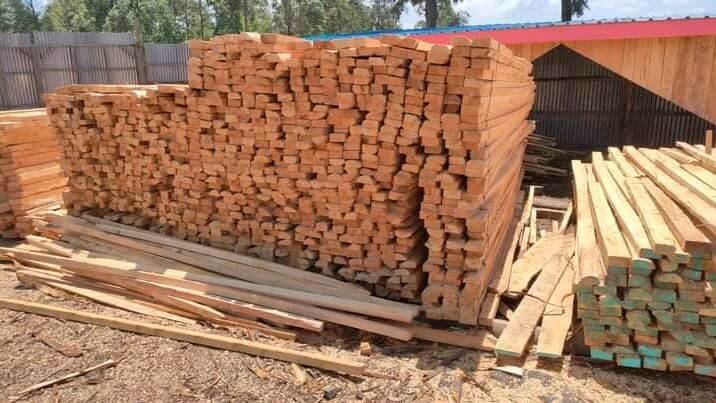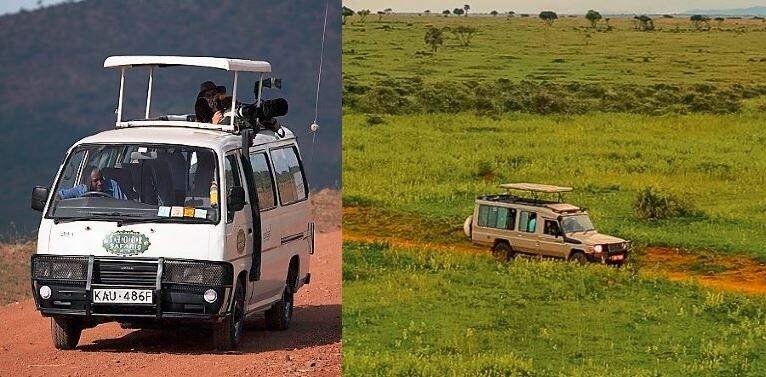Being a developing country, Kenya offers many opportunities to venture into various businesses. Have you ever thought of the timber yard business? Selling timber is among the thriving enterprises in Kenya today due to the high demand for timber in the furniture and construction industries. Today, you’ll learn how to start a timber yard business in Kenya.
Timber business remains one of the businesses with low competition. To succeed in this business, find a reliable source of timber and ensure they are of high quality. This post will cover everything you need to know to start a timber yard business in Kenya.
Guide On How To Start a Timber Yard Business in Kenya
The steps below will help you start and run a successful timber yard business in Kenya.
Conduct Market Research
Market research before starting any business is essential. In this case, the study will enable you to get information on prices, competitors, and sources of timber. The study will also assist you in obtaining information on-demand qualities and types.
Once you complete the research, you’ll be able to determine if the business is profitable in your area and the starting capital.
Also Read: How to Start a Nail Parlor Business in Kenya
Draft a Timber Yard Business Plan
Write an effective timber yard business plan that will act as your framework for starting and running the business. The business plan should concentrate on the business location, startup cost, market segmentation, and the business’s strengths and hazards.
A good business strategy aids a startup in navigating the business industry. If you have no idea how to draft a business plan, you can hire a professional to help you write the plan.
Identify a Strategic Timber Yard Business Location
Will your target be the people building houses nearby or the foot traffic? It’s up to you. Your target market will significantly contribute to the location. If you want to sell roofing timber, you should locate the business in fast-growing residential areas.
If you intend to focus on wood, the yard should be within busy and accessible roads to facilitate transportation. Locating your business near other timber businesses is advantageous because you can benefit from clustering economies, which can boost your profit margin and lower your marketing expenses.
Acquire Timber Business License
To operate a timber yard business in Kenya, you must first register it. You can get licenses from the county council or County government offices. The license costs Ksh. 6,000, and you should renew it annually.
You also need authorization from Kenya Forest Services for you to be allowed to cut down trees.
Identify a Reputable Timber Supplier
To operate a thriving timber business, you must sell high-quality lumber to your clients. Investigate the types of trees that are highly demanded in your area. Once you decide on the ideal kind of timber for the job, you’ll need to find a reputable supplier.
Also, you’ll need to get a sawmill and figure out how you’ll transport the lumber to your place of work. Buying trees and cutting them yourself is generally cheaper than purchasing ready-to-use lumber.
You’ll make more profits since you’ll also sell sawdust and firewood. Also, you’ll get the chance to cut the lumber in your desired sizes and the option of getting timber from rural areas at a lower price.
Find Out: Profitable Businesses to Start in Rural Areas in Kenya
Marketing Your Timber Yard Business
Customers are the backbone of every business. To succeed in the timber yard business advertising the venture should be a priority. You can market using business cards, flyers, and billboards.
Also, maximize on social media platforms like Instagram, Whatapp, and Facebook. Social media can reach a large number of people at a lower cost.
Starting Capital of Timber Yard Business
Every entrepreneur’s question is how much they’ll require to get started. The factors influencing the startup cost of a timber yard business in Kenya include the size of the business, business location, business licensing, rent, transportation, and market competitiveness.
Below is an estimated startup cost of a timber yard business in Kenya.
- Small-sized timber yard business- from Ksh. 30k to Ksh.100k
- Medium-sized timber yard business- from Ksh. 100k to Ksh. 300k.
- Large timber yard business- from Ksh.300k and above.
Additionally, you’ll require logging equipment such as sharpening tools, power saws, and measuring tape.
Is Timber Business Profitable in Kenya
The timber business is a lucrative venture in Kenya with a reliable supply. Timber is always in demand as it’s used to construct houses and make roofing and furniture. To increase your profit margins, buy log trees and cut them yourselves, as it’s cheaper than purchasing lumber for resale.
Besides, you’ll also be able to sell sawdust and firewood, making extra money.
Best Trees For Timber In Kenya
If you want to plant trees for timber, consider the following types of trees.
Cinder Trees
The cinder trees have a longer maturing duration and are appropriate for afforestation. They have high-quality timber and posts. Being one of the top ornamental trees, you ought to plant them along fences and the driveway.
The trees have great windbreak ability and are better suited to making a living hedge or fence on larger properties. Cinder trees grow fast and can be found in various climate zones around the country.
Eucalyptus Trees
Eucalyptus is the most common tree in any part of the country that receives adequate rainfall. The trees are unpopular in dryer regions as they can cause aridity dues to their high water intake.
They are highly profitable due to their numerous uses. A 3-5-year-old is ready for posts, poles, fencing, and firewood. The 8-15 years are ready for electricity transmission poles and pulp. The 15-20 are suitable for timber.
Pine Trees
Pine trees rank among the most profitable trees for commercial tree farmers in Kenya. The whistling pine tree is popularly known as the Casuarina equisetifolia. The pine tree is also among the fastest trees in Kenya.
The tree is grown for charcoal, fuel, and fencing posts. Its other commercial uses include posts, furniture, soil stabilization, dye construction poles, boat building, fodder, landscaping, and mulch ( the dry pine).
Cypress Trees
Cypress tree farming is among the most profitable business idea in the country. The tree is best suited for building poles, timber, and industrial use for pulp production. Cypress trees can grow up to 40m high, and you can use their pruned branches for firewood.
Also, you can grow it on the fence to create a well-maintained live fence.
Grevillea Trees
Grevillea is the top multi-purpose tree in the country. Its mature straight trunks are suitable for poles, firewood, and saw timber. Also, due to its nutrient-rich leaves, you can use the tree for agroforestry purposes for animal bedding, livestock fodder, and compost manure.
You can plant the tree for shade in coffee and tea plantations since it doesn’t cause aridity. Growing the grevillea tree can turn your $ 0.1 worth of seedlings into around $15 in six years.
The trees are decorative and will give your property and perimeter fence an attractive rich appearance.
Meru Oak Trees
Meru Oak is the most valuable in making exterior and interior office and home furniture. Its timbers are similar to the valuable teak tree lumber. Besides decorative veneers and furniture, the tree is a good source of beams and firewood.
Podo Tree
Podo tree, also known as the yellowwood, has fairly hard block locks with no scent and doesn’t chip easily. These qualities make its products the ideal option for making ships and boats.
Besides, the Podo tree has numerous applications in flooring, construction, indoor trim, railway sleepers, musical instruments, food containers, carving, vats, toys, agricultural implements, pattern making, musical instruments, joinery, matches, particle board, headboard, and turnery.
The tree is also used as firewood, and it’s regarded as high-quality pulpwood.
Bottom Line
The key to success in the timber business is finding a reliable source of timber at an affordable price. Before you start, ensure you understand the type of timber in demand in your desired business location.
I hope this guide on how to start a timber yard business in Kenya has informed you on everything you need to get started. Get started now!







